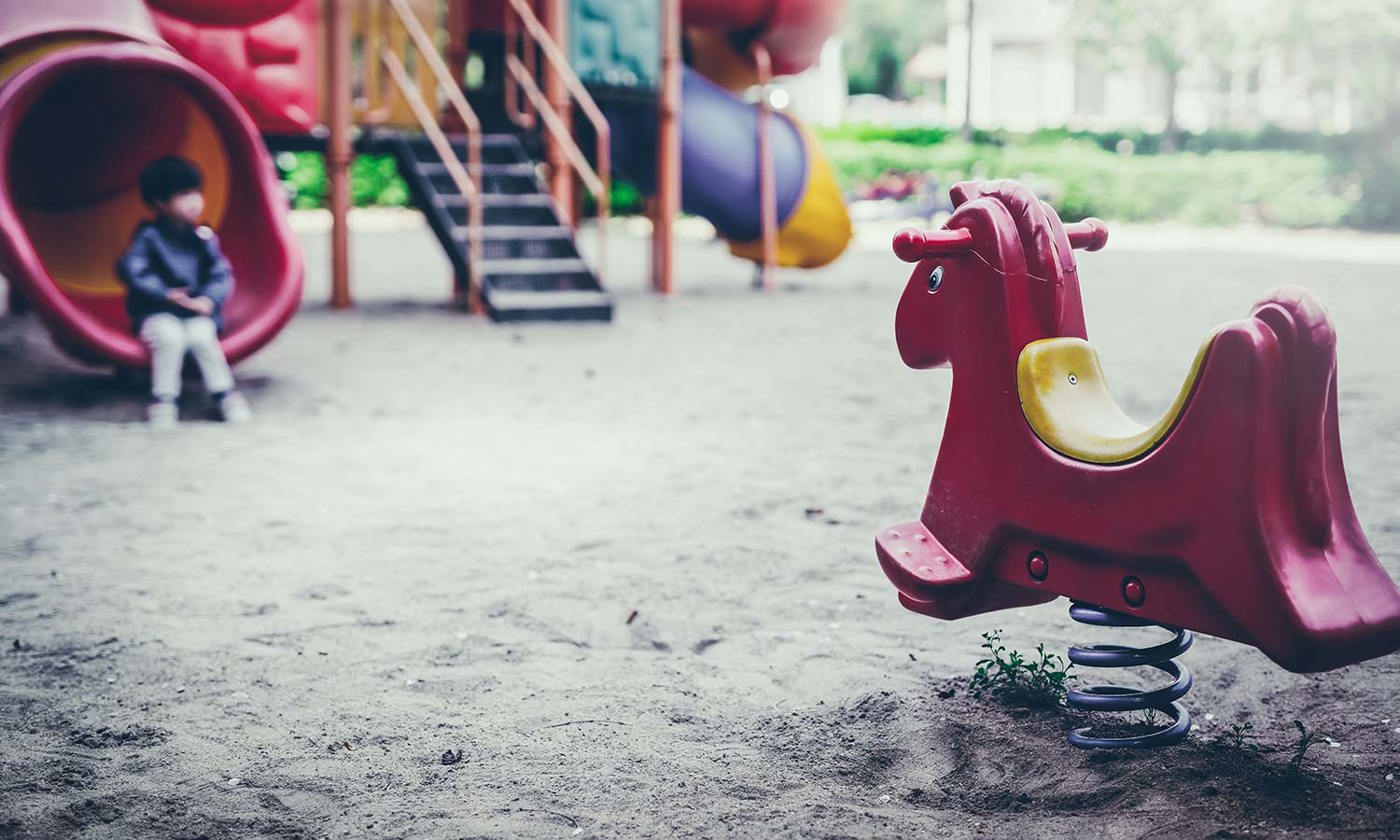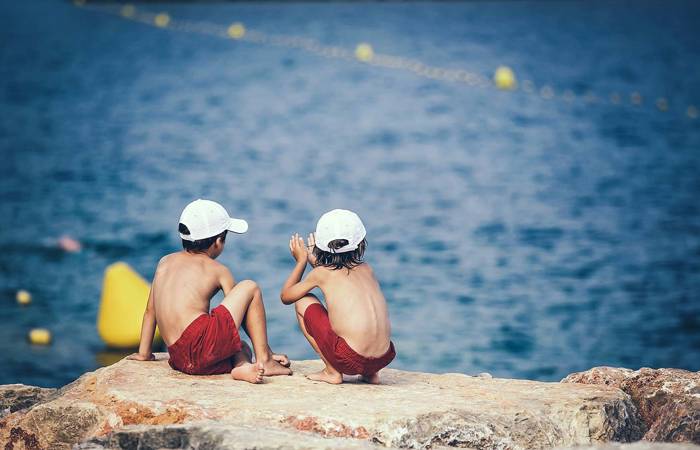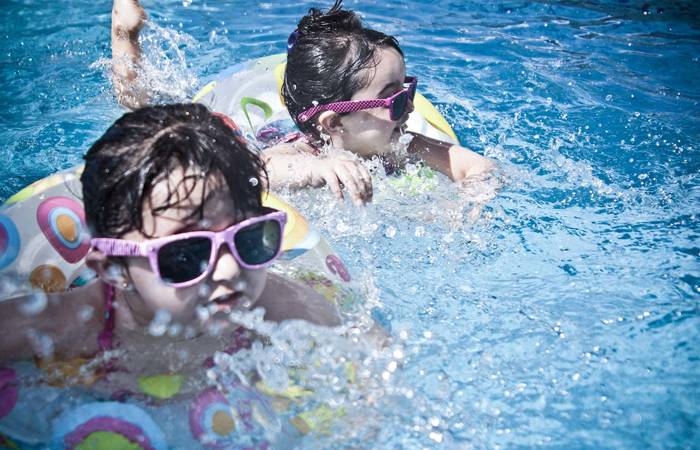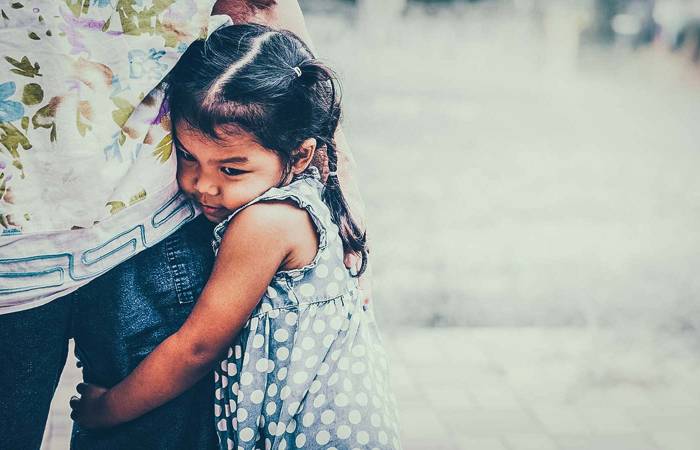Like what you see?
Sign up to receive more free parenting advice.
Thank you for subscribing to our newsletter!
Child Development

Credit: iStock.com/ByoungJoo
One of Australia’s leading organisations focused on child safety says teaching children that all strangers are dangerous can do more harm than good, particularly, when it comes to children getting lost.
In previous generations, children were taught the key messages of stranger danger. Don’t talk to any adult who you don’t know. The problem says Holly Brennan, CEO of the Daniel Morcombe Foundation is that, “Stranger Danger was based on a myth. It wasn’t evidence based.”
Holly says that parents and carers felt more comfortable telling their children about the dangers of strangers than talking about the truth, which is “that 90% of cases where adults harm children, the perpetrator is known to the family, part of the family, or part of the family's life".
Stranger Danger is not the correct message
“Less than one per cent of children are abducted by someone we could classify as a stranger. Most children in Australia are abducted due to a custodial dispute,” says Holly.
Our fear of strangers seems to be passing on to our children.
In a report for the Royal Commission into Institutional Responses to Child Sexual Abuse, Taking Us Seriously: Children and young people talk about safety and institutional responses to their safety concerns, children between the ages of four and 18 years old were asked to identify people, places and things that weren't safe. ‘Strangers’ was among the top answers.
The report says, "[Children and young people] told us that being safe and feeling safe are different things and that adults need to understand this if they’re going to help kids better."
Say you are walking in the park, it’s a great opportunity to talk to your child about what would happen if they couldn’t find mummy, or daddy, or grandma and they were worried. Explaining that they could ask someone for help and identifying someone in the park – for example a parent with a pram. Telling them to use their big voice to ask for help, so people could hear them better. Practising with them what they would say.Holly Brennan
The new message: Safe Strangers
Holly says that a better message to children is, “Not all strangers are dangerous, strangers are just people we haven’t met yet.”
Holly says it is important for children to identify who could help them if they were to get lost.
The Daniel Morcombe Foundation uses a tool to help educate children about who are safe people in their lives using their hands and fingers. On each finger, with the help of a parent or carer, the child identifies people they believe are safe and who they could go to for help.
Holly says, “Start with one of their carers on the little finger, like Mummy, or Daddy or their Foster Carer, then ask, who else can help me? The child might say their Aunt or Grandma, or their Early Childhood Teacher.”
Once they have listed those they know who could help them, Holly says to ask them: What if the people who you know aren’t around? Who could help you then? “If they get lost, and are scared, teach them that there are adults whose job is to help them and if lost to find such an adult.”
Holly recommends that the identified people are those in a job or in a uniform, “as it gives them a higher safety factor". Some examples would be the police (make sure they know what a police person looks like), or a lifeguard (“the people who help with the flags”), or a shop keeper.
Another key safe person is another parent or carer with children, along with the message that they want to help children just like their parent or carer helps them.
Every year, the Daniel Morcombe Foundation holds Day for Daniel on October 26, which is an online broadcast of Australia's Biggest Child Safety Lesson and educates teachers and parents on personal safety strategies for children three to eight years old. They have a wealth of information on children identifying safe adults in their lives.
Stay up to date with the latest news and articles from First Five Years
Thank you for subscribing to our newsletter!
Holly recommends that it is important to put the learning into practice.
“Say you are walking in the park, it’s a great opportunity to talk to your child about what would happen if they couldn’t find mummy, or daddy, or grandma and they were worried. Explaining that they could ask someone for help and identifying someone in the park – for example a parent with a pram. Telling them to use their big voice to ask for help, so people could hear them better. Practising with them what they would say.”
Holly says that it is important to keep in mind that people generally want to help.
Key information for a child to know
Holly says that while it is important for children to know their full names, and the full names of their carers, the information isn’t as helpful as it once was.
“We no longer have phone books to use people’s name to look up phone numbers. It’s more important that children feel comfortable in seeking help when they get lost.”
Holly explains that the message of Safe Strangers is equally as important as talking to children about their feelings.
“We often just want our children to be happy, but to let them know that it is okay for them to feel sad or angry, so that when they are in a stressful situation, like being lost, they understand that they are scared and then know to go get help.”
Phone numbers are another useful tool, if your child is old enough to remember them. If not, writing it somewhere such as the bottom of their scooter is useful as long as the child is aware of it and knows to show the adult they are seeking help from.
Your child gets lost, now what?
With children, Holly recommends contacting the police straight away.
“Most police would respond instantaneously. It’s also not only the missing factor, there are also safety concerns when they are so little, such as traffic on roads or bodies of water if at the beach, for example.”
Seek help from key community members such as lifeguards or shop management. Holly says, “the world is good, Australia is very safe, and most people would be willing to help.”
Another tip is to think like a child, where would they go?
When found, Holly says it is important for the child not to get into trouble, but rather be praised for seeking help, or staying in the same place, depending on what you had taught them. That way, they are more likely to remember to do the same thing, should it happen again.
The police recommend teaching children the following if they are approached by someone they feel is unsafe:
- Make sure your parents or another adult you know knows where you are at all times.
- Always walk straight to the place you are walking to and walk where it is busy or there are lots of people.
- Know where safe places are. If you are ever frightened, you should go to one of these places and ask them to call the police.
- Learn about safe adults you can look for and talk to if you need help.
- Don’t talk to people you don’t know and never get into a car with someone you don’t know. If a car stops on the side of the road and you don’t know the person inside, do not stop.
- If you are scared and can use a phone, call 000 and tell them you are scared.
- If someone tries to grab you, yell out, "Go away, I don’t know you". This lets other people know you have been approached by someone you don’t know.







